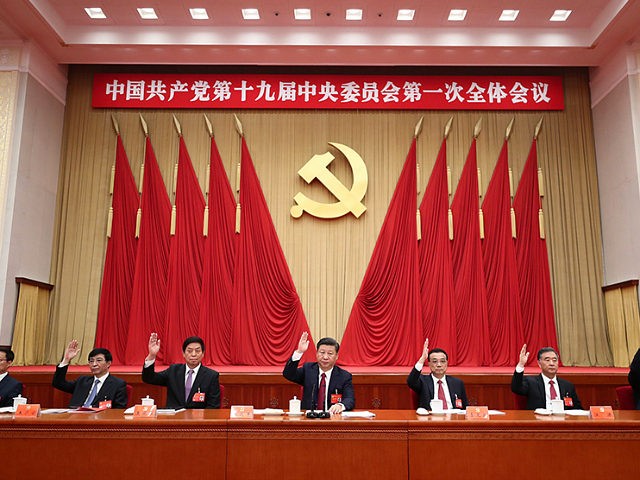China’s state-run Global Times ran an op-ed Wednesday denying charges that Beijing is using huge “Belt and Road” infrastructure loans to buy political influence in Africa.

The Global Times wrote that African entrepreneurs are hailing “China’s offer of $60 billion in financing for the development of the continent” and anticipating “huge business opportunities in the future.”
The latter talking point is an effort to refute allegations that some of the expensive projects Beijing is bankrolling in Africa can never turn enough of a profit to repay the loans. China’s response is that Belt and Road projects are necessary to access Africa’s oil and mineral wealth, which will generate the profits needed to make the loan payments.
As for the loans that have so many observers worried, the Global Times found analysts who said there is little reason to worry about huge debt loads taken on by private corporations in Africa. The theory is that China would only be able to use its loans as political leverage if African government entities were borrowing all the money. Also, Chinese leaders promise they have no political motivations and would never dream of interfering in the governance of African nations.
This defense is disingenuous for several reasons, not least of which is that the line between private corporation and public entity has a way of blurring in the Third World. Even when African governments do not wholly or partially own corporations, they would likely feel obliged to step in to prevent the collapse of major enterprises. And in any event, African government entities are borrowing huge amounts of money from China, in many cases crossing the threshold of debt above 50 percent of GDP, which is considered dangerous for developing economies.
Even as the Global Times was publishing its apologia, news broke that Sri Lanka is even further in debt to China than previously believed, and Sri Lanka already lost an entire city to its Chinese creditors. Sri Lanka’s total debt load currently stands at roughly 77 percent of its GDP.
The Global Times defensively insisted that Chinese loans are not “free money” for Africa, which is exactly the point: the money comes with strings attached, but the strings are woven of pure Chinese geopolitical interest. Those strings are longer and harder to see than the fiscal reforms demanded by Western lending institutions.
Chinese loans look attractive to Third World governments precisely because they do not expect the kind of fiscal discipline the International Monetary Fund does. Instead, the Global Times frets over establishing anti-corruption measures to ensure “good governance” and prevent local “corruption and bureaucracy” from hindering Chinese investment. That sounds a lot like the kind of interference with local government China supposedly avoids.
It should also be noted that even some defenders of Beijing’s lending policies to Africa have complained about policies that require Chinese companies to be hired for work on projects financed with Chinese loans.
The L.A. Times on Monday detected a growing backlash from within China against Belt and Road, despite incessant government propaganda, as Chinese citizens wonder why so much of their national wealth is being diverted to other countries.
“Why is China, a country with over 100 million people who are still living below the poverty line, playing at being the flashy big-spender? How can such wanton generosity be allowed?” law professor Xu Zhangrun asked in July.
China’s extravagant spending in Africa was one of the topics 84-year-old retired professor Sun Wenguang was talking about in early August in a live interview with Voice of America when police barged into his home and dragged him away. Sun was released after ten days but said he believes he is still under surveillance. His wife was forced to issue a false statement that the couple went on vacation.
https://www.breitbart.com/asia/2018/09/05/china-insists-loans-to-africa-are-not-free-money/